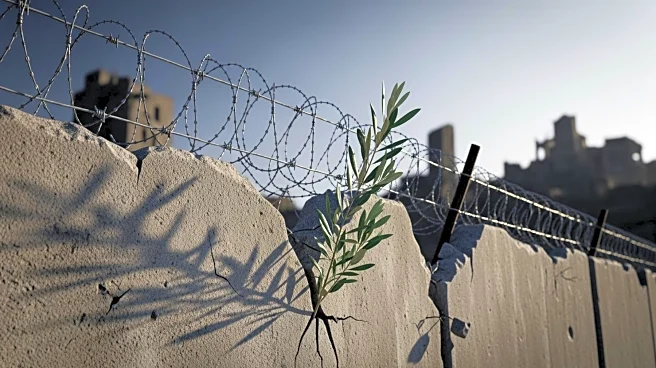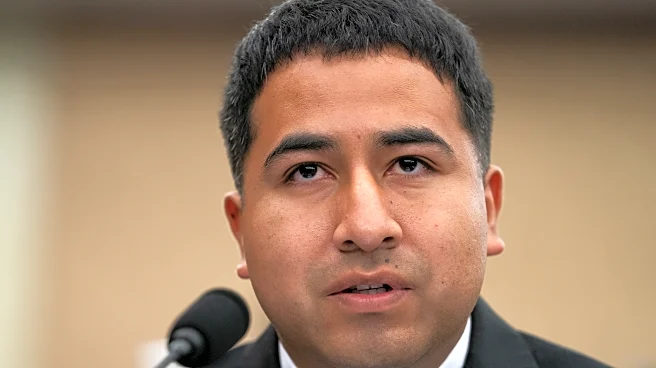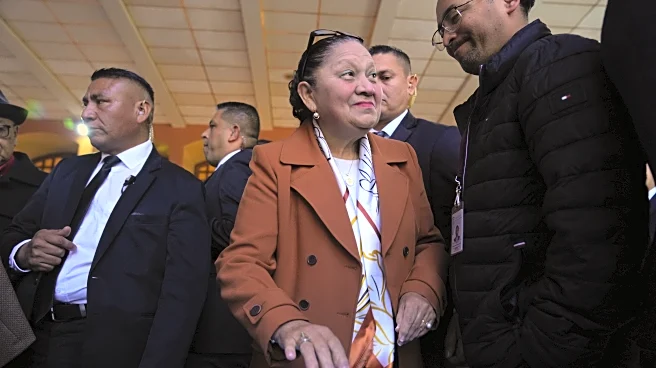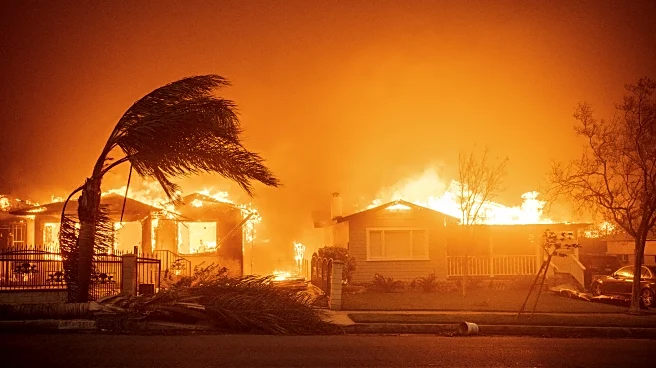What's Happening?
An NPR reporter, along with other international journalists, was escorted by Israeli military forces into Gaza for the first time since the war began. The visit highlighted the extensive destruction in the Shujaiya neighborhood, once a bustling area outside
Gaza City, now reduced to ruins. The ceasefire has divided Gaza into two parts: one controlled by Israeli forces and the other by Hamas. The Israeli military is entrenched in its half, preparing for a long-term presence, while Hamas consolidates control over its territory. The visit was tightly controlled, with restrictions on interviews and filming, and the military censor reviewed NPR's raw audio and video.
Why It's Important?
The division of Gaza and the ongoing military presence have significant implications for the region's stability and future peace efforts. The ceasefire agreement includes plans for a multinational peacekeeping force and the disarmament of Hamas, which are crucial steps towards lasting peace. However, the entrenched positions of both Israeli forces and Hamas suggest potential challenges in implementing these plans. The humanitarian situation remains dire, with Palestinians unable to return to areas under Israeli control, exacerbating the crisis. The international community's response and involvement will be critical in addressing these issues and supporting peace initiatives.
What's Next?
The next phase of the ceasefire involves deploying a multinational peacekeeping force and disarming Hamas, which are essential for Israel's withdrawal from Gaza. The success of these steps is uncertain, and failure could lead to renewed conflict. The Israeli government faces a deadline to respond to a Supreme Court challenge regarding independent journalist access to Gaza, which could impact media coverage and transparency. The situation remains fluid, with potential for further developments depending on political and military actions.
Beyond the Headlines
The controlled access for journalists raises concerns about transparency and freedom of the press in conflict zones. The humanitarian impact on Gaza's population, living under divided control, poses ethical questions about the responsibilities of occupying forces and international aid organizations. Long-term implications include the potential normalization of the division of Gaza, affecting future peace negotiations and regional dynamics.













![Cortisol vs. Melatonin: The Biological War Happening Inside Every Night-Shift Worker]](https://glance-mob.glance-cdn.com/public/cardpress/binge-magazine-card-generation/spaces/US/en/discover-daily/images/ppid_7byehtbd-image-177082393426031154.webp)



